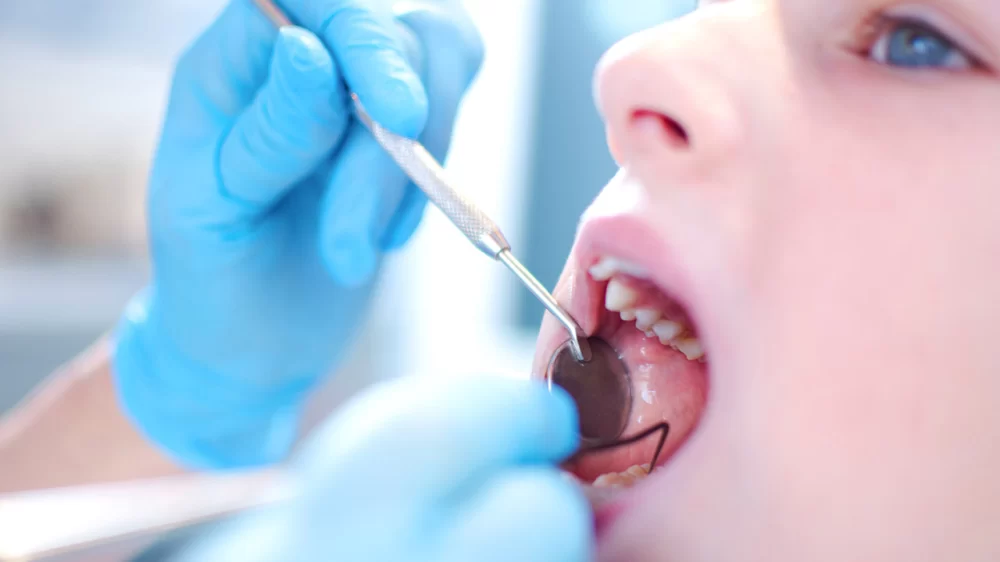
How to Prevent Long-Term Dental Problems in Kids: Essential Tips for Parents
As a parent, one of the most important responsibilities we have is ensuring the long-term health and well-being of our children. While we often focus on general health, we cannot overlook the importance of dental care. Proper oral hygiene habits formed during childhood can pave the way for a lifetime of healthy teeth and gums. But how can we prevent dental problems from becoming a significant issue later on? Let me walk you through the key steps I personally take and recommend to other parents for preventing long-term dental problems in kids.
1. Start Early: The Foundation of Good Oral Hygiene
It may sound surprising, but it's crucial to start dental care before your child even has their first tooth. As soon as your baby is born, you can start cleaning their gums using a soft cloth or a gum brush after feedings. I remember when my child was a few months old, and I started gently wiping their gums; it felt like such a small act but made a big difference. The goal is to get them used to the feeling of oral care from an early age, so when their first teeth emerge, they are already accustomed to the idea of cleaning their mouth.
Once the first tooth arrives, it's time to introduce a soft-bristled baby toothbrush. Don’t worry about using toothpaste at this stage, as just brushing with water is sufficient. By the time your child is 2 or 3 years old, you can start using a tiny amount of fluoride toothpaste—this helps prevent cavities and ensures that your child’s teeth are protected as they begin to grow.
2. Encourage Brushing and Flossing: Creating Good Habits
As your child grows older, it becomes essential to establish a routine for brushing and flossing. I know from experience that getting kids to brush their teeth can sometimes be a challenge. But it’s all about making it fun and part of their daily routine. When my son was younger, we made tooth brushing a game. We pretended to "chase the sugar bugs" and would use a timer to brush for the recommended two minutes. It's important to set aside time in the morning and before bed for brushing, ensuring that it becomes as natural as getting dressed or eating dinner.
Once your child has more teeth, it’s time to introduce flossing. Flossing helps remove food particles and plaque from areas that a toothbrush can’t reach. At first, I would help my child floss, but as they grew older, I encouraged them to do it themselves, even if it was just a quick attempt. Eventually, it became second nature to them, and now they do it every day without needing a reminder. Establishing good habits early on will ensure that your child maintains healthy teeth and gums as they grow.
3. Proper Nutrition: Fueling Healthy Teeth
A good diet plays a critical role in preventing dental problems. I quickly realized that what my children eat can have a direct impact on their oral health. Foods high in sugar, like sugary snacks and sodas, contribute to tooth decay, so we made it a priority to limit these foods. Instead, we focus on providing nutritious meals with plenty of calcium, vitamin D, and phosphorus—these nutrients are crucial for strong, healthy teeth. I also make sure my children drink plenty of water throughout the day, as it helps rinse away food particles and neutralize acids that can lead to cavities.
Cheese, yogurt, and leafy greens are just a few examples of foods that are good for dental health. I try to make meals fun by involving my kids in the cooking process, teaching them about the importance of eating healthy foods not just for their teeth but for their overall health too. The more they understand how their diet affects their bodies, the more motivated they are to make healthy choices.
4. Regular Dental Check-Ups: The Key to Early Detection
Even with the best home care routine, regular visits to the dentist are essential for maintaining your child’s oral health. I make sure to schedule dental check-ups for my children at least twice a year, starting when they are around their first birthday. These appointments provide an opportunity for a professional cleaning and an early examination to detect any issues like cavities or alignment problems that may be developing.
During these visits, the dentist will also give us valuable guidance on how to care for your child's teeth as they grow. I’ve found that these visits not only help in preventing dental problems but also help my children feel comfortable in a dental environment, which is essential for their long-term dental care. The earlier any issues are identified, the easier they are to treat, preventing more serious problems from developing down the road.
5. Protecting Teeth from Injury: A Simple Step for Active Kids
Kids are naturally active, and with that energy comes the risk of dental injuries, especially during sports. I realized early on that using a mouthguard was an easy and effective way to protect my children’s teeth from injury during physical activities. It might seem like a small thing, but I’ve seen firsthand how a mouthguard can prevent broken or knocked-out teeth. Investing in a good-quality, custom-fit mouthguard is a step that should never be overlooked, especially for children involved in contact sports like football or basketball.
Even if your child isn’t playing sports, be mindful of activities where they could potentially harm their teeth, such as biking or skateboarding. Teaching kids to be cautious and aware of their surroundings also plays a role in preventing unnecessary accidents that could damage their teeth.
6. Setting a Positive Example: Lead by Example
Perhaps the most important way to ensure your child takes dental care seriously is by setting a good example yourself. I’ve found that when my kids see me taking care of my own teeth—brushing, flossing, and eating healthy—they are more likely to follow suit. Children are keen observers and tend to mimic the behaviors they see at home. I make sure that my oral care routine is something we all do together, whether it’s brushing our teeth at the same time or talking about how important it is to visit the dentist regularly.
By making dental hygiene a family affair, I’ve been able to instill the importance of oral health in my children from an early age, making it a habit they will carry with them throughout their lives. This approach has not only kept their teeth healthy but has also strengthened our bond as a family.
Remember, the journey to preventing long-term dental problems in kids doesn’t have to be difficult. With the right knowledge, habits, and regular care, we can ensure that our children maintain healthy, strong teeth throughout their lives. I hope these tips have helped you as much as they have helped me along the way!







 Eastridge Family Dental, P.C.4.0 (267 review)
Eastridge Family Dental, P.C.4.0 (267 review) Pediatric Dental Specialists4.0 (302 review)
Pediatric Dental Specialists4.0 (302 review) Crossroads Pediatric Dentistry0.0 (0 review)
Crossroads Pediatric Dentistry0.0 (0 review) Metropolitan Oral and Maxillofacial Surgery Associates4.0 (365 review)
Metropolitan Oral and Maxillofacial Surgery Associates4.0 (365 review) Pristine Dental4.0 (237 review)
Pristine Dental4.0 (237 review) Family Dentistry of Westford4.0 (19 review)
Family Dentistry of Westford4.0 (19 review) The Importance of Oral Health Education During Pregnancy for a Healthy Pregnancy
The Importance of Oral Health Education During Pregnancy for a Healthy Pregnancy Best Tips for Brushing Your Teeth Properly for Healthy Gums: Essential Techniques for Oral Health
Best Tips for Brushing Your Teeth Properly for Healthy Gums: Essential Techniques for Oral Health Why Skipping Dental Checkups Can Lead to Bigger Oral Health Problems
Why Skipping Dental Checkups Can Lead to Bigger Oral Health Problems Advantages of Porcelain Dental Restorations
Advantages of Porcelain Dental Restorations How Can Diabetes Cause Tooth and Gum Problems? Preventing and Managing Oral Health Issues
How Can Diabetes Cause Tooth and Gum Problems? Preventing and Managing Oral Health Issues Healthy Habits for Promoting Good Oral Health and Hygiene: Tips for a Healthy Smile
Healthy Habits for Promoting Good Oral Health and Hygiene: Tips for a Healthy Smile